-
Spotlight on Non-Ferrous Metal Recycling
All recyclable materials have their worth, but non-ferrous metals are particularly valuable. If your company produces scrap metal or if you are interested in the effects of recycling on the environment, then you can benefit from learning more about non-ferrous metal recycling near Atlanta.
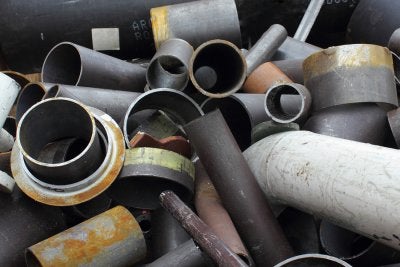
What are non-ferrous metals?
Non-ferrous metals include copper, zinc, tin, nickel, aluminum, lead, gold, silver, platinum, and others. The metals in this category do not contain iron, are non-magnetic, and are more resistant to corrosion than ferrous metals. Of all the recyclable materials, non-ferrous metals are among the few that do not break down or lose their physical or chemical properties during the recycling process, meaning that they can be reused an infinite number of times without changing in composition. These characteristics make non-ferrous metals incredibly valuable recycling materials.
What items are made from non-ferrous metals?
A large amount of the non-ferrous metal that is recycled in the United States comes from industrial waste resulting from the production of goods like cars and appliances. Some examples of industrial sources of non-ferrous scrap metal include automobile batteries, radiators, boats, window frames, airplane parts, aluminum siding, pipes, and electrical wires. As a consumer, you might find yourself recycling these metals in the form of soft drink cans, packaging materials, cookware, cutlery, batteries, tin cans, and door knobs.
How are non-ferrous metals recycled?
If referring to volume, then non-ferrous metal recycling doesn’t account for much of all recycled materials in the United States. However, in terms of scrap metal, non-ferrous metal scrap made up more than 50% of total scrap recycling industry earnings in the country in 2012. The process starts with non-ferrous metal being collected through industrial, commercial, and residential recycling systems. The metal is then transported to a metal recycling center, where it is sorted. Each variety is then processed, refined, and converted into billets and ingots which are later sold to industries to be transformed into goods and start the process once again.
-
The Benefits of Recycling Glass
When you visit a location that has recycling bins , you’ll often see one that is designated for glass, because recycling this material offers several advantages. If you’re wondering if you could benefit from glass recycling serving Atlanta, then continue reading.
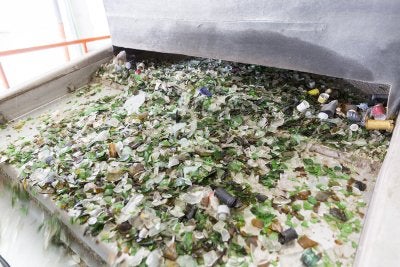
Recycling glass can be done repeatedly.
To understand the benefits of glass recycling, it can be helpful to know how it is created. Glass is made from materials that are readily available in our environment including soda ash, limestone, and sand. Silica, in the form of sand, is the primary ingredient and, when combined with soda ash and limestone and heated to incredibly high temperatures, these minerals melt and form glass. In addition to these ingredients, other materials can be included to give the glass different properties or colors. Because of the way in which glass is made, it can be processed again and again with no loss in purity or quality, meaning that it is a valuable and practical recycling material.
Recycling glass benefits the environment.
When new glass is produced, a significant amount of what goes into it is often glass that has already been made and recycled. This recycled glass that is considered to be “furnace ready” is referred to a “cullet” in the industry. Cullet can be substituted for as much as 95% of raw materials, making it a smart item to recycle. Also, glass provides a better material for food packaging because it is 100% recyclable, a claim that few other food packaging materials can claim. Recycling glass can help the environment by providing industries with more glass to use for packaging and at potentially lower costs.
Recycling glass can reduce energy usage.
The more cullet that is used in the recipe for new glass, the less heat and energy is needed for the glass-making process. By recycling glass, you can help return more of this material to the recycling system where it can be processed and converted into cullet. For this reason, recycling glass can reduce your carbon footprint.
-
Understanding Your Company’s Carbon Footprint
If you recently acquired recycling bins in Atlanta for your business, then you’re probably interested in fostering a green business and reducing your environmental impact. Continue reading to learn about your company’s carbon footprint.

What is a carbon footprint?
A simple way to think of your company’s carbon footprint is the sum of everything it does that impacts climate change. In many cases, a carbon footprint is calculated by creating an estimate of the total CO2 and other greenhouse gas emissions produced by your company’s operation. Once the numbers are added up, they are expressed as in what’s called a carbon dioxide equivalent, which represents how much CO2 would cause the same amount of warming.
How is a carbon footprint calculated?
To gain an understanding of where your company currently stands as far as its carbon footprint is concerned, you can hire an expert to come in and perform an assessment. To gather the information needed for calculating your business’s carbon footprint, the evaluator will add up as many emissions pathways as is feasible. Some examples of pathways include how much power is required to run your buildings each day, the amount of transportation needed for shipping products to or from your company, and the level of emissions generated by cooling or heating your business.
How can I reduce my company’s carbon footprint?
To make a dent in your company’s carbon footprint, start by having it calculated, so you know what areas to address. Also, setting up a recycling system is one of the simplest ways in which you can reduce your company’s negative impact on the environment. By placing metal, plastic, and cardboard recycling bins in your office or building, you can implement better waste management practices in a way that’s easy to use and maintain. A few other methods to consider are upgrading your company’s light bulbs to LEDs, encouraging working from home for employees, and getting your team in the habit of turning off electronics and lights when they aren’t in use.
-
How Plastic Bottles Are Recycled
Recycling systems offer business owners a simple and smart way to reduce their company’s operational costs and carbon footprint. Does your business practice plastic recycling near Atlanta ? If so, then watch this video to get a glimpse of how this material is recycled.
Once the plastic reaches the recycling facility, it is first run through a shredder, which helps release any liquid left behind in plastic bottles. Then, the shredded pieces are packaged and shipped around the world. While plastic recycling is frequently used to make more plastic bottles, it can also be part of the process for creating polyester.
-
Types of Non-Hazardous Industrial Waste
Having an effective and efficient recycling and waste disposal system is important for any business. If your company is part of an industry that produces waste, then understanding which materials are hazardous and which are not can be essential for developing a resourceful waste management program. If you regularly deal with industrial waste near Atlanta , then continue reading to learn about which materials are considered non-hazardous.
Non-hazardous industrial waste falls into several classifications. Class 1 wastes can be potentially threatening to the environment and human health, and examples of these include liquids that can ignite at temperatures exceeding 150 Fº and soils that are contaminated with petroleum hydrocarbons. Class 2 wastes are typically accepted at local landfills and can include items like non-radioactive non-surgical medical waste and depleted aerosol cans. Finally, Class 3 wastes do not decompose or react with other materials, and they are also insoluble. A few examples of Class 3 wastes are glass, rocks, bricks, and some plastics.
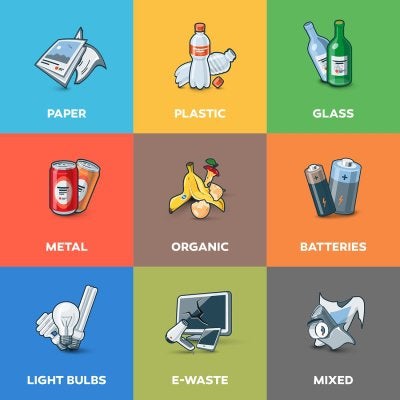
-
The Impact of the Recycling Industry
When you toss a used soda can into a recycling bin for aluminum materials, you may not give much thought to where it goes after or what type of impact that simple action can have. Watch this video to learn how recycling your waste near Atlanta impacts society and the environment.
For over 200 years, the recycling industry has provided countless benefits for the environment and the economy. When you place your recyclable waste into a recycling bin, it is processed and converted into a clean, high-quality product. This means that new items can be created with much less environmental impact. Also, in the United States alone, this industry directly employs more than 140,000 people, making it incredibly beneficial to the economy.
-
Up Close with the Waste Management Needs of a Grocery Store
Grocery stores are responsible for the contents of most Americans’ pantries. They’re the all-important conduit between farmers and consumers. Part of running a successful grocery store is making sure all waste needs are taken care of; after all, no one wants to shop at a grocery store with an overflowing dumpster nearby. Here’s a look at the average grocery store’s waste management needs and how those needs can be satisfied by waste disposal experts in Atlanta .
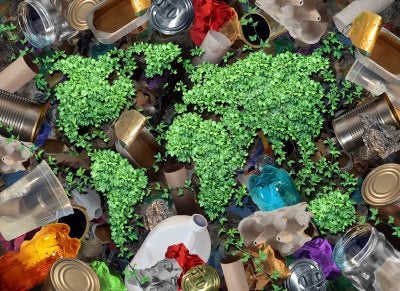
Packaging
Grocery stores have thousands, if not millions, of units of product delivered every year. Whether these products are from down the street or across the ocean, they need to be properly packaged to prevent damage or contamination. Once these products arrive, it’s the grocery store’s responsibility to remove and discard the packaging in a responsible manner. Fortunately, most product packaging these days is recyclable, making it relatively easy to dispose of in an environmentally friendly way.
Food Waste
In an ideal world, the average grocery store would sell all of its perishable food products before they rot or expire. In the real world, however, grocery stores need to find a way to dispose of any fruits, vegetables, meats, and dairy products that don’t sell quickly enough. Some grocery stores partner with local food banks, which then deliver the food to people in need. Whatever’s left is picked up by a waste management company and delivered to a place where it can be composted.
Renovations
Whether it’s decorating for a new season, altering the layout, or renovating, grocery stores frequently undergo changes to stay competitive. When it comes to this kind of change, the average grocery store is inevitably going to produce some waste. Renting a roll-off dumpster for the duration of these change can help simplify waste management. Once the project is over, a waste management firm can pick up the dumpster and properly dispose of the waste therein.
-
Waste Management in a Senior Living Community
Like any other residential community, senior living communities must take measures to ensure that their waste management needs are met. That said, senior communities have unique considerations that can only be addressed by a select few waste management companies in Atlanta. If you are in charge of handling waste disposal for a senior living community, think about the following factors when settling on a waste management company.
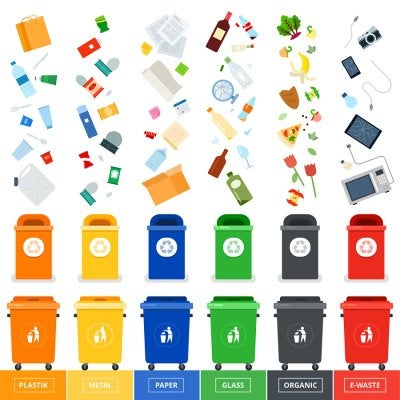
Garbage and Recycling
Dealing with day-to-day garbage is the most obvious waste management consideration for any community. Working with garbage specialists to estimate your community’s average garbage output is an important first step in determining how much dumpster space you need. Don’t forget the importance of recycling—there’s a good change that your staff and residents are throwing away items that can be recycled. Having a waste management company help with recycling can keep recyclable and compostable materials out of landfills.
Biological Waste
Senior living communities tend to have different medical needs than other communities. Some senior communities have a nursing staff to make sure seniors receive the healthcare they need to stay happy and healthy. Administering healthcare in such an environment often produces biological waste that can’t be disposed of in a normal manner. As the manager of a senior living community, you’ll need to find a company that’s qualified and equipped to handle certain types of biological waste.
Medication Disposal
Senior living communities are often targeted by criminals looking for prescription drugs. Not only can this put the members of your senior living community at risk, but it’s harmful to the surrounding community as well. It’s definitely a good idea to work with a waste management company in Atlanta to ensure that your dumpsters are properly secured, or else settle on an alternative method of disposing of medications. Enacting secure waste management practices can keep would-be criminals out of your community and your residents safe.
-
Reasons to Work with Southern Waste & Recycling
Every business produces waste at one point or another. As your business weighs its waste management needs, you should find a recycling company in Atlanta that offers the right services with the right attitude. Southern Waste & Recycling has years of experience providing our Atlanta clients with a wide range of waste management services, including roll-off dumpsters, industrial waste management, junk removal, and more.
At Southern Waste & Recycling, we provide transparent and professional service. We comply with all state and local guidelines, and all our waste management professionals have received the proper training. We also work hard to execute our clients’ day-to-day requirements and help streamline their logistics as much as possible. Throughout the project, our team members provide analytical data and reporting; and once the project is done, we offer our clients simplified and consolidated invoicing. When you work with us, we will ensure that all of your waste management needs are met, and we’ll do it with a smile on our face.
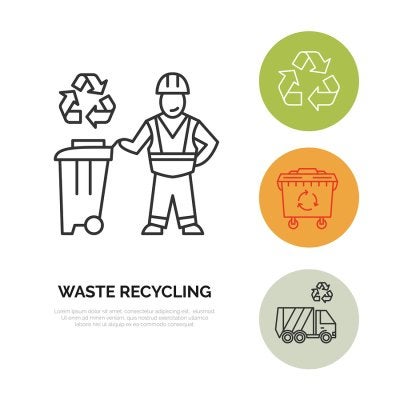
RECENT POSTS
categories
- Uncategorized
- Waste Management Atlanta
- Waste Disposal and Recycling
- Hazardous Waste Disposal
- Chemical waste removal
- solid waste removal
- R3 Program
- Sustainable Organizations
- Sustainable Waste Removal
- Commercial Waste Removal
- Materials Management Program
- Dumpster Rental
- Roll Off Dumpsters
- Construction Site Waste Removal
- Sustainability
- Recycling in Atlanta
- Industrial Recycling
- Industrial Waste Removal Services
- Southern Waste & Recycling
- Waste Removal Atlanta
- Waste Specialists
- Atlanta
- Infographic
- Front Load Dumpsters
- Rear Load Dumpsters
- Reusable Electronics
- Dump Truck Atlanta
- Recyclable Electronics
- Trash Compactors
- Recycling
- Recycling Program
- Office Recycling
- Metal Recycle
- Electronic Waste
